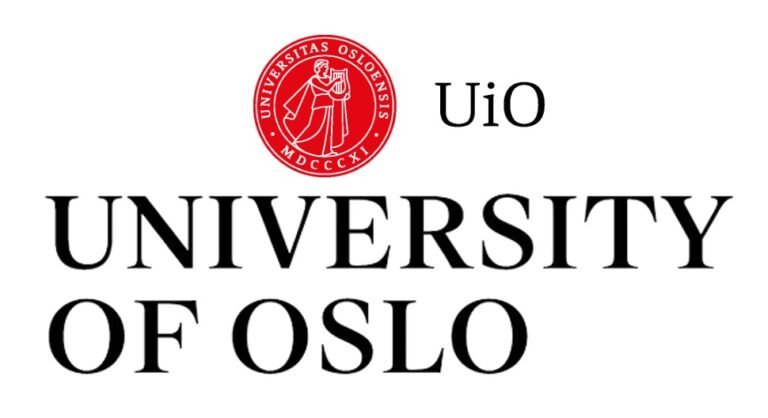Do you want to work on accelerating numerical linear algebra using machine learning, with the support of competent and friendly colleagues in an international environment? Do you want an employer that invests in sustainable employment and offers safe, favorable working conditions? Welcome to apply for employment as a doctoral student at the Department of Information Technology, Uppsala University.
Uppsala University has a long tradition of successful research – among its alumni are 16 Nobel laureates, most recently Svante Pääbo. The university is unique in combining IT with broader research, from the life sciences to the humanities, and this collaboration is currently facilitated by AI4Research and the Center for Interdisciplinary Mathematics .
The Department of Information Technology has a leading position in both research and education at all levels. We are currently Uppsala University’s third largest department and currently have just over 350 employees, of which 120 are teachers and 120 are doctoral students. Approximately 5,000 undergraduate students take one or more courses at the department each year. More information about us can be found on the department’s website .
At the Department of Systems Engineering, we develop both theory and concrete tools for designing systems that learn, reason and act in the real world based on a seamless combination of data, mathematical models and algorithms. Our research integrates expertise from machine learning, optimization, control theory and applied mathematics, and spans various application areas such as medicine, energy systems, biomedical systems, materials science and security. We have a broad network of strong international collaborators all over the world, for example at the University of Cambridge, University of Oxford, Imperial College, University of Tübingen, University of Sydney, and Aalto University. We strive for all doctoral students to gain a solid international experience during their doctoral studies.
Project description
In this project, the PhD student will investigate the potential for accelerating sparse matrix computations using machine learning, specifically so-called graph networks. Sparse matrix computations are crucial for solving large-scale computational problems, but currently require experts to design algorithms for each individual case. The methodology the PhD student will explore offers a more accessible alternative for developing efficient solvers, with the potential to have a major impact in both science and technology. The basic idea is to exploit the underlying graph structure of sparse matrices to define graph networks that learn problem-specific algorithms from a dataset of computational problems. By integrating machine learning with sparse matrix computations, we hope to reach new levels of efficiency and scalability in solving sparse linear systems.
The exact details of the project will be determined in dialogue between the doctoral student and the supervisor. Possible directions include: (1) developing techniques for learning problem-specific iterative methods for sparse matrices, (2) developing techniques for learning problem-specific hierarchical graph representations, and (3) scaling up these techniques to realistic, large-scale computational problems. There are great opportunities to drive method development through our collaborations in radiotherapy, medical imaging, additive manufacturing, and battery chemistry.
Job duties
The doctoral student will primarily devote himself to his own doctoral education. Other duties at the department, relating to teaching and administrative work, may be included within the scope of the employment (max. 20%).
Qualification requirements
Eligibility for doctoral education is regulated in the Higher Education Ordinance. Basic eligibility is granted to those who:
- completed an advanced degree in engineering physics, machine learning, computer science, computer science, electrical engineering, applied mathematics, or a similar field, or
- completed at least 240 credits, of which at least 60 credits at advanced level including an independent project of at least 15 credits, or
- have acquired essentially equivalent knowledge in some other way within or outside the country.
The university may grant an exemption from the basic eligibility requirement for an individual applicant if there are special reasons. (Chapter 7, Section 39 of the Higher Education Act). For specific eligibility requirements, see the study plan for the subject .
We are looking for candidates with:
- a strong interest in developing new methods for computational science and machine learning,
- excellent academic results,
- good working knowledge of programming (preferably in Python).
- good communication skills with sufficient knowledge of spoken and written English.
- personal qualities such as a high level of creativity, accuracy and/or a structured approach to problem solving.
Desirable/meritorious in other respects
Courses or other experience in one or more of the following topics are valued: linear algebra, mathematical analysis, numerical linear algebra, optimization, statistical machine learning, deep learning, and software development.
Provisions for doctoral students can be found in the Higher Education Ordinance, Chapter 5, Sections 1-7, and in the university’s rules and guidelines .
Application
The application must contain:
- a personal letter in English (max. 2 pages) in which you briefly explain why you are applying for this position and state your earliest possible start date. The personal letter should include the heading Suitability for this position , which contains a self-evaluation of why you would be the right candidate for this position;
- a curriculum vitae (CV);
- degree certificate and transcript of records with grades (translated into English or Swedish);
- degree report (or draft thereof, and/or other self-produced technical or scientific text), publications and other relevant documents;
- contact information for two references (name, email and phone number) and up to two letters of recommendation.
About the employment
The position is fixed-term, according to HF Chapter 5 Section 7. The position is full-time. Start date August 18, 2025 or by agreement. Location: Uppsala.
Information about the position can be obtained from: Jens Sjölund, jens.sjolund@it.uu.se, +46 18 471 78 40 .
Welcome with your application no later than March 28, 2025, UFV-PA 2025/172.
Uppsala University is a broad research university with a strong international position. The ultimate goal is to conduct education and research of the highest quality and relevance to make a difference in society. Our most important asset is all 7,600 employees and 53,000 students who, with curiosity and commitment, make Uppsala University one of the country’s most exciting workplaces.
Read more about our benefits and what it’s like to work at Uppsala University
https://uu.se/om-uu/jobba-hos-oss/
The employment may be subject to a security check. In the event of a security check, a prerequisite for employment is that the applicant is approved.
We decline offers of recruitment and advertising assistance.
Applications are accepted in Uppsala University’s recruitment system.





